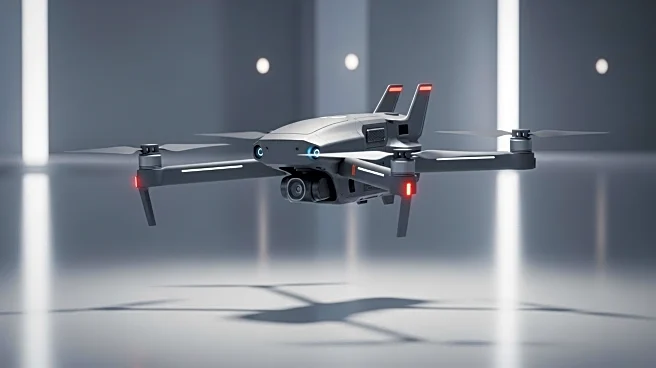What is the story about?
What's Happening?
On September 26, 2025, U.S. District Judge Paul Friedman upheld the Pentagon's decision to classify DJI, a leading drone manufacturer based in Shenzhen, as a 'Chinese military company.' This ruling keeps DJI on the Defense Department's blacklist, known as the Section 1260H list, due to alleged ties to China's military-industrial base. The court's decision was based on DJI's designation as a National Enterprise Technology Center by the Chinese government, which provides subsidies and tax breaks, and the dual-use capabilities of its drones. This classification bars DJI from new U.S. federal contracts and has already led to significant financial losses for the company, as well as the impounding of its drones by U.S. Customs under labor-sanctions rules.
Why It's Important?
The ruling has significant implications for the U.S. drone market, where DJI holds a dominant position, accounting for over 50% of U.S. drones and 70-90% of consumer drones worldwide. The decision forces many American users, including hobbyists, police, and businesses, to seek alternatives, potentially increasing costs and reducing capabilities. U.S. drone companies like Skydio and Parrot are seen as potential replacements, but they are more expensive and less mature compared to DJI. The case also underscores ongoing U.S.-China tech tensions, with national security concerns about Chinese-made drones being used for state intelligence. This decision could lead to further legislative actions against Chinese technology companies.
What's Next?
DJI has expressed disappointment with the ruling and is considering an appeal. The company faces a December 2025 deadline for a Pentagon security review, which could result in a complete ban on DJI products if not cleared. Meanwhile, U.S. federal agencies will be prohibited from using DJI drones starting in 2026. The U.S. drone industry may see increased consolidation and a push for domestic R&D funding to develop competitive alternatives. The ruling may also intensify legislative efforts to restrict the use of Chinese-made drones in the U.S.
Beyond the Headlines
The case highlights broader U.S.-China tech tensions and the national security risks associated with relying on Chinese-built drones. U.S. security officials argue that Chinese laws could compel companies like DJI to support state intelligence efforts. The decision reflects a growing trend of scrutinizing Chinese technology companies for potential security threats, which could lead to further restrictions and impact the global tech landscape.















